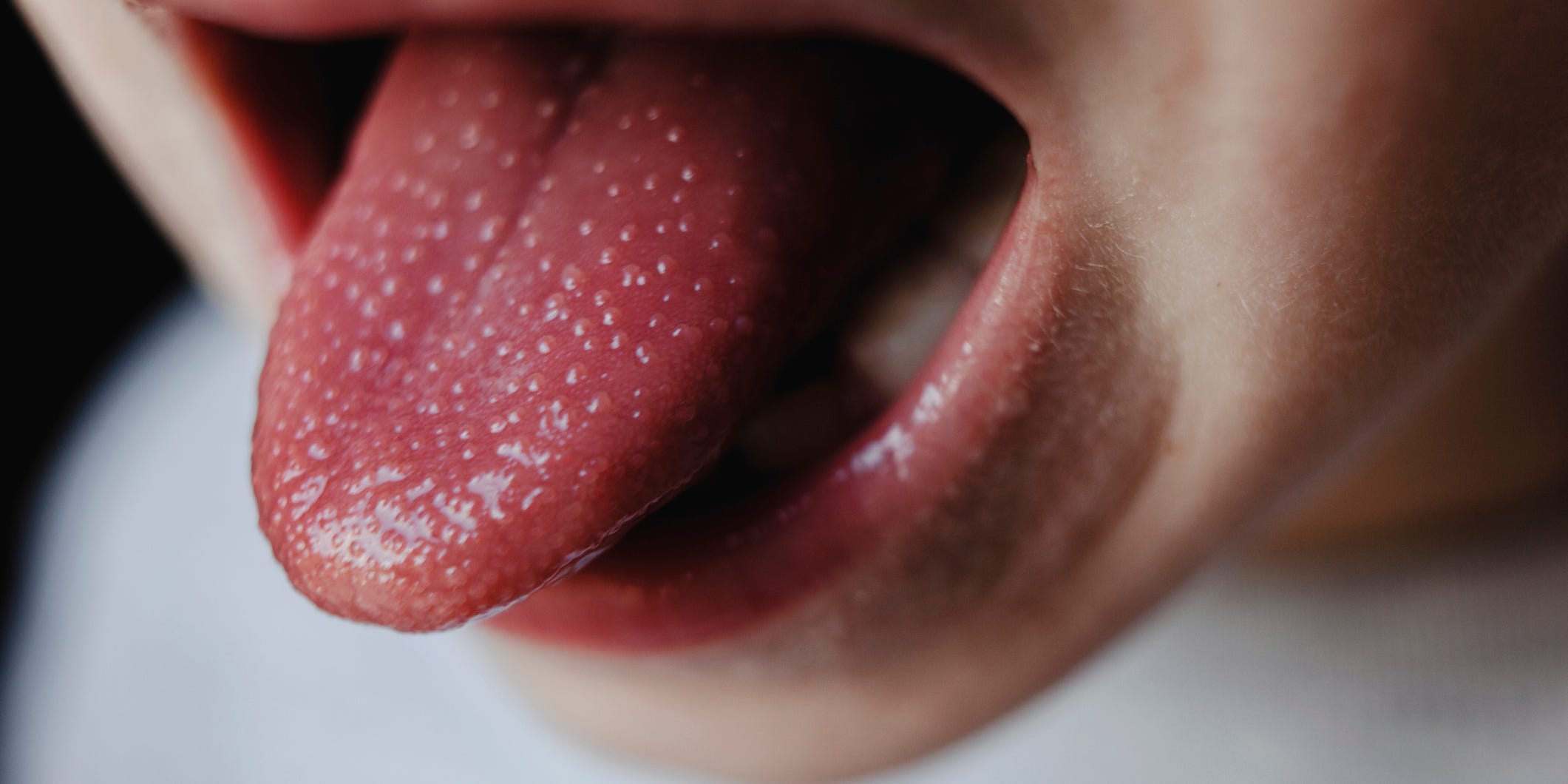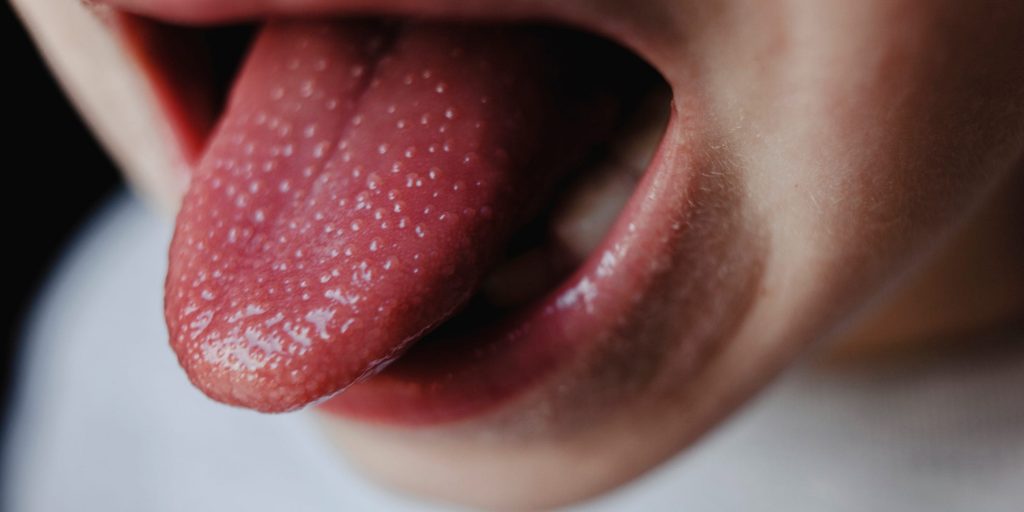
Pawel Wewiorski/Getty Images
- Bumps on your tongue may be lie bumps, canker sores, cold sores, or in rare cases, oral cancer.
- Lie bumps are common and happen when the small bumps on your tongue become inflamed.
- Oral cancer is the rarest possibility and may appear as a growth or sore on your tongue.
- Visit Insider's Health Reference library for more advice.
If you have a bump on your tongue chances are it's not a pimple. Pimples can't occur on the tongue because acne is caused by clogged pores or follicles, which the tongue lacks. Instead, these "tongue pimples" are bumps that can occur for a variety of reasons ranging from harmless to more serious.
1. Lie bumps
Lingual papillitis, commonly referred to as lie bumps, is a common ailment. They appear when the papillae become inflamed, resulting in red or white swollen bumps.
Lie bumps can range from being mildly irritating to painful, says Rhonda Kalasho, DDS, double board-certified dentist at GLO Modern Dentistry.
There are two causes for lie bumps:
- Infection: If you have the bumps along with a fever and swollen glands, it's likely that they're caused by a bacterial or viral infection, Kalasho says. In this case, the infection is contagious so you should avoid kissing people or sharing drinks.
- A trigger like spicy foods or stress: If you notice bumps on your tongue after eating certain foods or going through stressful periods, then you could have "transient lie bumps," which will disappear within a few days. Kalasho says these are the main triggers for transient lie bumps.
How to treat it: If the lie bumps are accompanied by symptoms that indicate infection, Kalasho says you should see a doctor for proper diagnosis and treatment. In more serious cases, you may need to be prescribed medication like antibiotics to target the infection.
Regardless the cause, Kalasho says you can soothe symptoms by:
- Maintaining good oral hygiene
- Rinsing with salt water
- Avoiding spicy or acidic foods
2. Canker sores
Canker sores are white lesions inside the mouth that are typically painful, says Sage Pollack, DMD, dentist and founder of Dentistry of Colorado.
They might appear as a bump or as a shallow ulcer, and they can vary in size. They may affect the gums, the inside of the cheeks, or the tongue.
Common causes of canker sores, according to Pollack, include:
- Stress
- Spicy food
- Irritation to toothpaste ingredient sodium lauryl sulfate
- Allergic responses
- Low vitamin B12 levels
How to treat it: Canker sores will resolve on their own in around seven to 10 days, says Pollack. In the meantime, Kalasho says one of the best remedies to reduce the duration and irritation of canker sores is using a saltwater rinse, mixing one cup of warm water with two tablespoons of salt.
If your pain is severe, Kalasho says you can also look for mouth rinses specifically marketed towards sores that help to numb the mouth.
3. Cold sores
Cold sores are contagious lesions caused by the herpes simplex virus, typically HSV-1 (herpes simplex virus type 1). This is extremely common, with about 67% of the population being infected with HSV-1. Pollack says they look like blisters - red, raised, and painful bumps. They typically occur outside of the mouth on and around the lips, but it is possible for them to occur on your tongue, as well.
How to treat it: Since herpes is contagious, it's important to avoid kissing, engaging in oral sex, or sharing drinks and food.
To treat cold sores, Pollack and Kalasho say you should see a doctor who can:
- Use a laser treatment to remove them.
- Prescribe oral or topical antiviral medications that can shorten the lifespan of the cold sore and prevent future outbreaks.
4. Oral cancer
While it's much more likely your tongue bump is caused by one of the above conditions, oral cancer is a possibility. Oral cancer is very rare, affecting 1.7% of men and .71% of women.
Pollack says oral cancer may appear as a persistent growth or sore. If you have a bump that doesn't disappear in two weeks, have your dentist check it out. They may perform a biopsy if they suspect cancer.
How to treat it: Treatment for oral cancer will be determined by your physician, but may include biopsies and excisions, and in more serious cases, chemotherapy and radiation. However, the best treatment is prevention, which means avoiding tobacco and limiting alcohol use.
Insider's takeaway
While the bump on your tongue is definitely not really a pimple on your tongue, it may be due to something like a canker sore or cold sore.
What's important is that you are aware of any changes in your mouth. If you're in severe pain that's affecting your daily activities or in pain for more than several days, make an appointment with your dentist. They can determine the root cause and how to best treat it.
